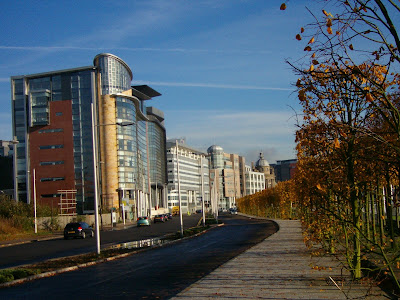Where Has The Water Gone?

Two headlines caught my attention today. The first was from Tuesdays Glasgow Evening Times: Save water plea ... after wet summer It was about Scottish Water's recently launched campaign to encourage people to save water. The reason for this campaign is not a shortage of water but a drive to save energy in treatment and pumping of the water. While I do support any measures that we can take to reduce energy use and carbon emissions, I feel that this is Scottish Water trying to pass the responsibility on to the public rather than dealing with their own wasteful inefficiencies. They lose more water through leakage than the total domestic consumption, as noted here , so whatever individuals do to save a little bit of water is nothing compared with the amount leaking from pipes. The volume of water lost through leakage will not reduce even if the volume used by consumers is reduced significantly, in fact it may increase as the pressure in the sy...








